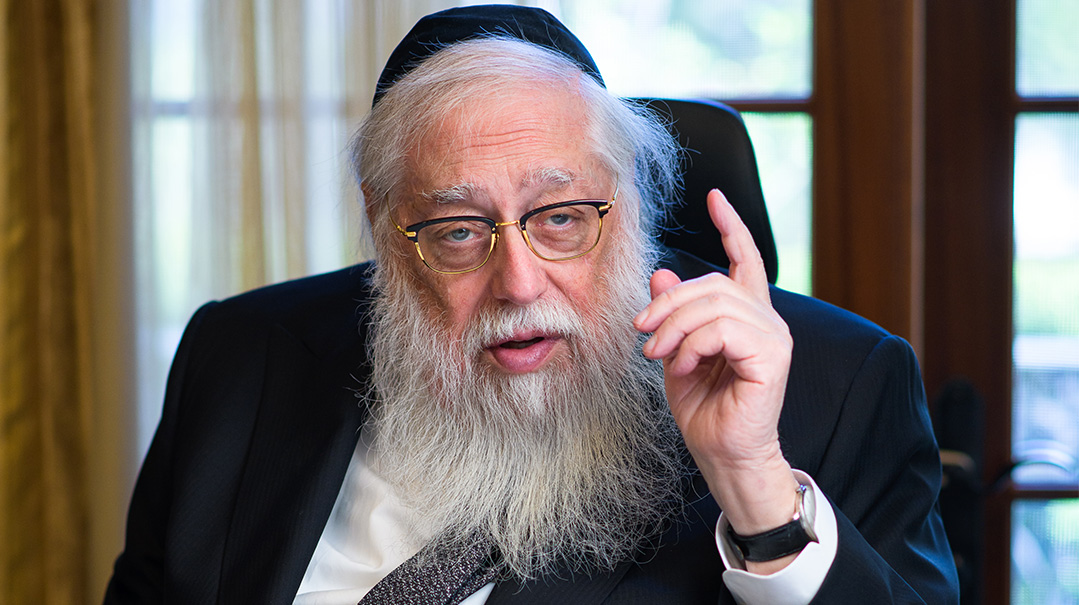Life Itself

Reb Avrohom Chaim Fruchthandler goes public

Photos: Naftoli Goldgrab
Many years ago, a great rosh yeshivah told one of his closest talmidim, “Ess iz shoin tzeit — the time has come, that you should start helping other mekomos haTorah too, not just ours.”
That’s what the rebbi, who was both chacham and navi, said.
Now, over four decades after the passing of Rav Yitzchak Hutner, the rebbi who made that remark, his talmid still sees it as a guiding light. In keeping with that guidance, he’s breaking a longstanding policy and doing what is, for him, almost inconceivable.
Rav Avrohom Chaim Fruchthandler, president of Yeshiva Umesivta Rabbeinu Chaim Berlin and exemplar of his rebbi’s vision for “Zevulun,” has been helping not just Rav Hutner’s Rabbeinu Chaim Berlin but also the wider olam hayeshivos for decades with his resources. Now he is fulfilling his rebbi’s directive by venturing into territory that is doubly new: speaking with the media, and speaking about politics.
He sees I’m recording our conversation and says nothing, and when the photographer starts to set up his equipment, the host moves his chair over to accommodate him.
I know that for Reb Avrohom, this is an act that demands real sacrifice. He does not do interviews. (Trust me on this one. I may have tried once or twice.)
In the realm of “off the record,” there is no one more delightful and gracious; over the years his conversations have always been heavy in insight and humor, and laced with real shimush chachamim. It’s not a lack of courtesy that shaped his longtime determination not to appear in print publications — like all of his philosophy, it comes from his rebbi, who disdained the falsehood permeating the media.
But — and this distinction is crucial in understanding Reb Avrohom’s current mission — following the directives of our chachamim isn’t limited to, “okay, the rosh yeshivah paskened and this is how it always was and will be.” Rather, as someone who has a vibrant connection to talmidei chachamim, Reb Avrohom is capable of nuance, of adapting to changing realities, and now, a different rosh yeshivah has told him that it is time to speak.
That rosh yeshivah is Rav Shlomo Halioua, a son-in-law of Chaim Berlin’s Rosh Yeshivah Rav Aharon Schechter, himself the handpicked successor of Rav Hutner, who, before moving to Eretz Yisrael at the end of his life, charged Rav Aharon with leading the yeshivah. Reb Avrohom Fruchthandler has bowed before two generations of leadership since Rav Hutner, and his posture is still one of hachna’ah, of reverence, to the man who fills the post of rosh yeshivah.
And so he speaks — on the record. As usual, he is passionate, and as usual, he is eloquent. At times emotional, other times entertaining, always focused — and today, there is an added element, because today, he is talking about that which is most precious to him.
That which is most precious to us.
Oops! We could not locate your form.







